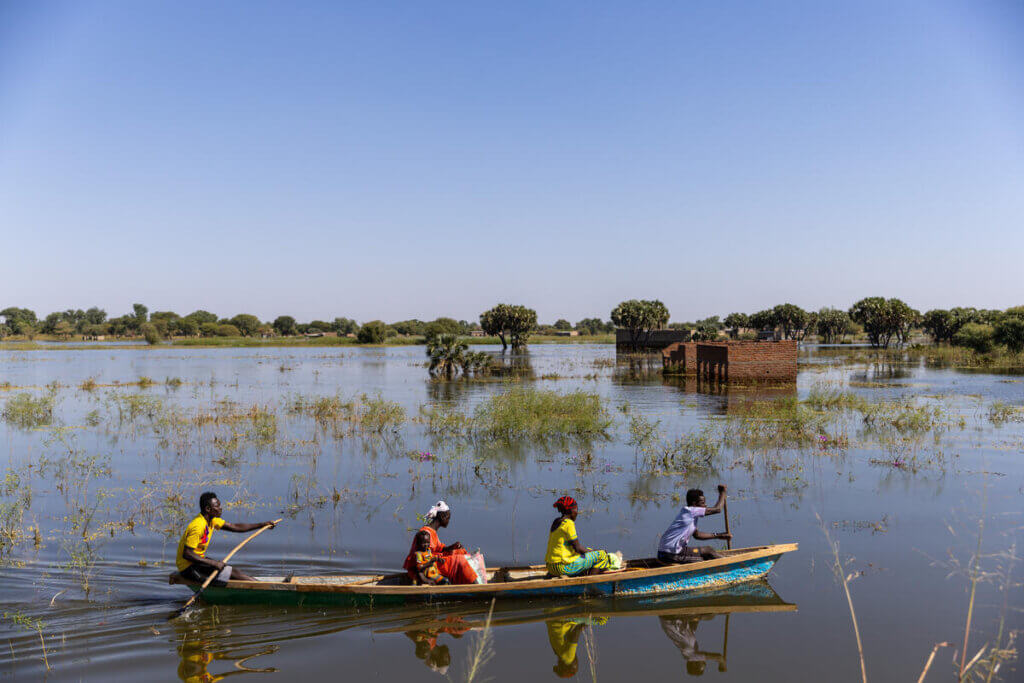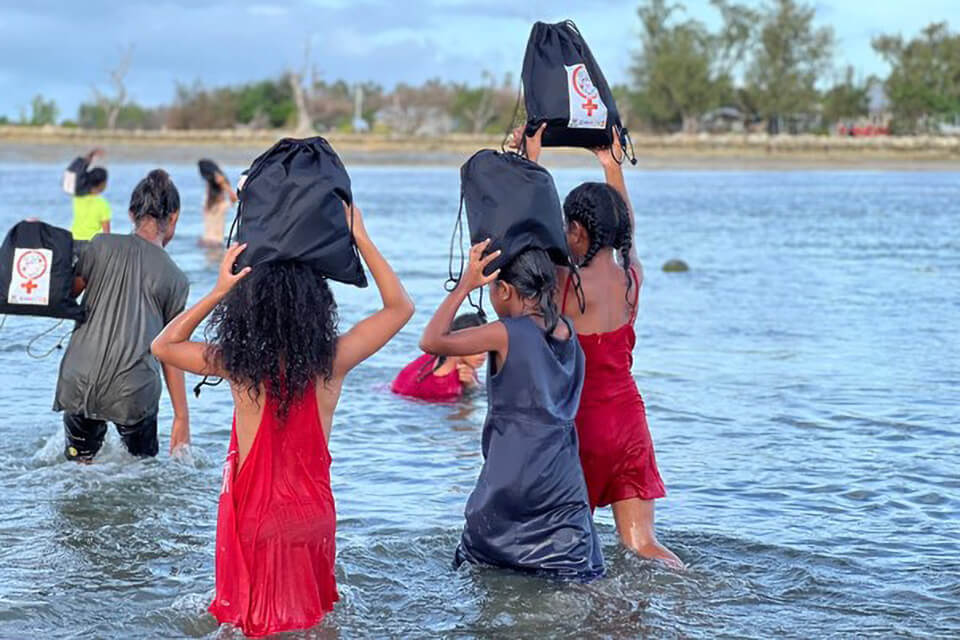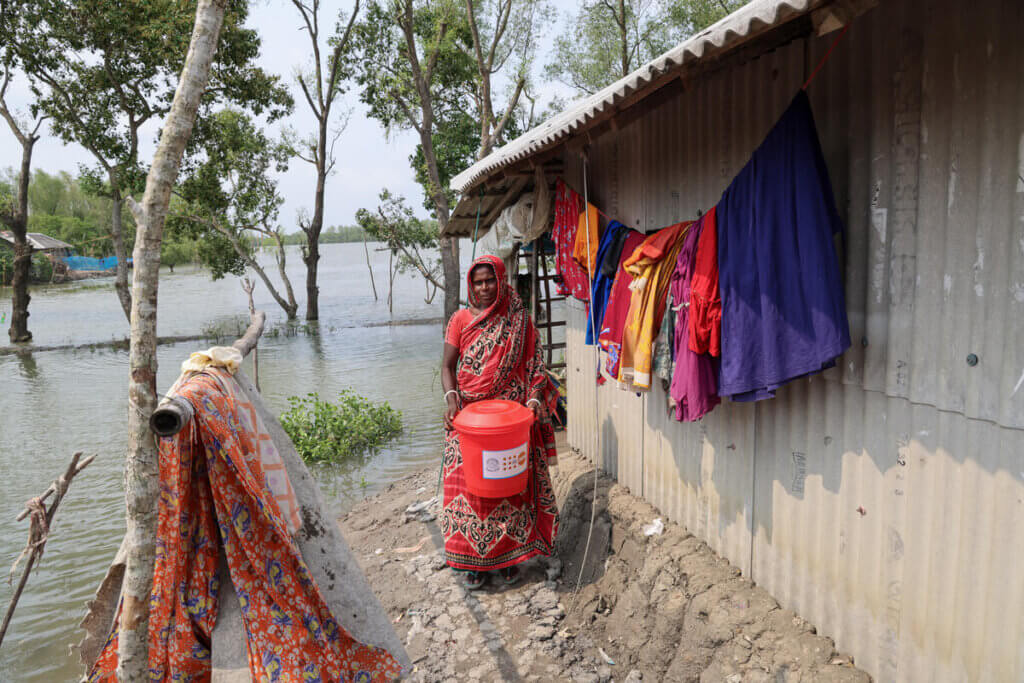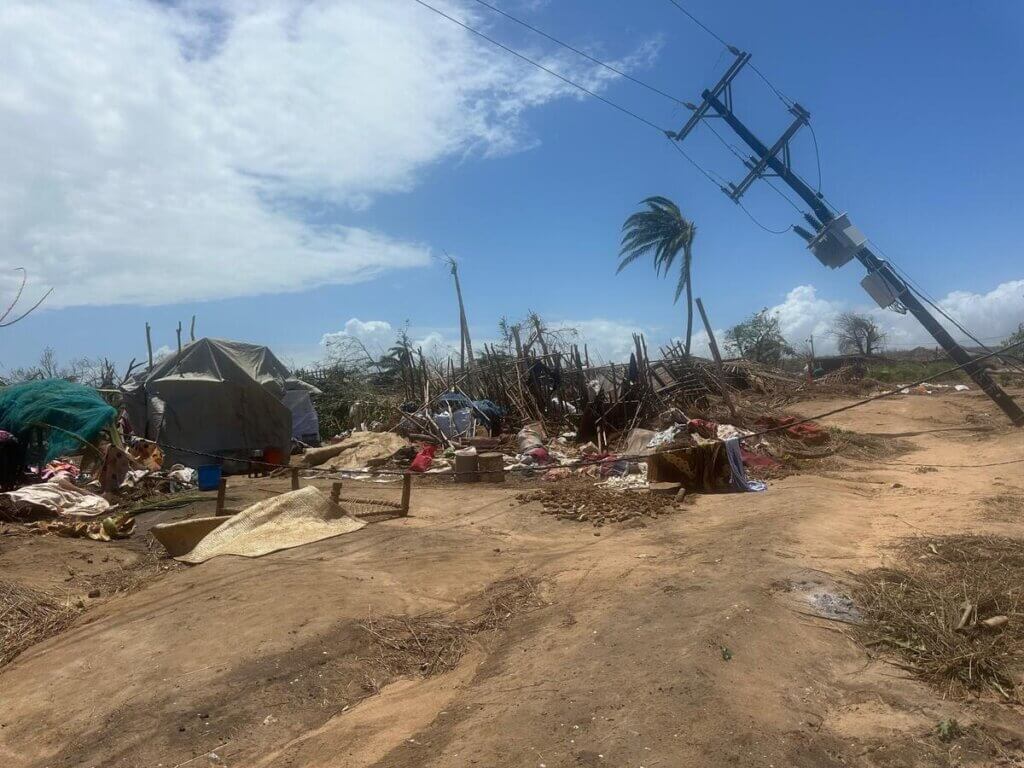When the Sea Breaks the Road: Women on the Front Lines of Climate Change

The effects of climate change can no longer be ignored. From record-breaking temperatures set every single summer to higher sea levels and stronger storms, the effects of climate change are being felt by everyone. But, as with most crises, it’s the poorest and most vulnerable among us that are being hit the hardest by climate change – which in most regions includes women and girls.
In small islands throughout the Pacific, the rising sea levels are devastating communities and making access to healthcare virtually impossible to reach. In drought devastated regions, lack of water and food is putting women and girls at increased risks of serious health issues and violence. In regions that already experience volatile hurricane and cyclone seasons, the storms are rolling in stronger and more unpredictable than ever before.
Consistently, the nations that have contributed the least to climate change are suffering the most from its impacts. And in those countries, women and girls are bearing the brunt of the harm.
During crises, women and girls eat last and least; violence against women increases; and the needs of women and girls, such as education, are pushed to the side. The climate crisis is a gender equality issue – and if we fail to take urgent measures, the clock will be set back even further on achieving true equality.

“The sea has broken the road.”
For the 65 million people living in Small Island Developing States (SIDS), which are 57 small island nations in the Carribean, the Pacific, and African, Indian Ocean, Mediterranean and South China Sea (AIMS), every day is a reminder of how urgent the climate crisis is. In the small Pacific nation of Solomon Islands, Dr. Leeanne Panisi is the first and only female obstetrician – but as if that alone wasn’t daunting enough, Dr. Panisi is also fighting against the rising sea levels.
“Climate change has definitely affected health services in the Solomon Islands,” Dr. Panisi told us. “In places where there used to be roads, there are now rocks; the sea has broken the road. Imagine a pregnant woman seeking help to go to the nearest clinic when she has to travel through that.”
Midwife Litia, a retired Fijian midwife who UNFPA kept on its roster for emergencies in the region, has worked through multiple climate disasters to provide lifesaving care to women affected. The deployment that stuck with her most was in Vanuatu, following Cyclone Pam – one of the most intense tropical cyclones to hit the South Pacific Ocean.
“When we got there, it was chaotic. The nurses and other healthcare workers had been working nonstop at the hospital. They hadn’t gone to their homes or seen their families in weeks,” she shared with us.
As a midwife, Lita and her colleagues do more than just deliver babies safely in the aftermath of emergencies – they also offer vital family planning services, postnatal care, and provide help to women and girls facing increased rates of violence.

“The water ruined everything – the rice, the money… Everything is under water.”
After a prolonged period of extreme drought across the Lake Chad Basin, the first raindrops were a relief. But too quickly, the rain grew too heavy and destructive – resulting in a devastating series of flash floods throughout West and Central Africa that left more than 5 million people in need of humanitarian assistance.
This is not the first time. As the climate crisis continues to advance, countries such as Chad continue to see this devastating pattern of drought followed by violent floods. The result is the consistent threat of water insecurity, food shortages, and increased tensions between people trying to control the finite resources.
“Life is already difficult. We have to fight daily for survival,” one woman, Gabdaibe, shared with us when she visited the maternity ward at the Kalambari refugee camp in Chad after being displaced.
“The water ruined everything – the rice, the money… Everything is under water,” Gloria, another displaced woman, shared with us. “This is where I live now,” she said, referencing the overcrowded displacement camp she was residing in. “There is no other way, but we make it work.”
In displacement camps such as the ones Gabdaibe and Gloria now live in, hunger and malnutrition have risen steadily – posing a serious threat to pregnant and breastfeeding women, girls who could be vulnerable to child marriage, so families have one less mouth to feed, and women and girls at risk of violence.
“If there was food, I would eat, and the milk would come for the baby,” said Chanceline, who was heavily pregnant when she was displaced. “But there’s no food, and the baby is getting thinner. I’m losing weight all the time.”

“I don’t know how we’ll manage to buy anything or return home with my children.”
In countries already prone to cyclones and monsoons, climate change has increased the severity and unpredictability of these catastrophic events. Last May, Cyclone Remal battered across Bangladesh, impacting nearly 13 million people with floods or flash floods. In southeast Bangladesh alone, 1.6 million women of reproductive age live in flood-hit areas, where health facilities were damaged, homes destroyed, and lives lost. Those that survived the floods had only the clothes on their backs.
“I was flooded in neck-deep water before coming here. I was swept away with my children, with nothing but the clothes we were wearing. I have no idea how we’ll ever return home. I went to check yesterday, but the water is still too high to even enter the house,” Bilkis, a displaced woman, shared with us. “I don’t know how we’ll manage to buy anything or return home with my children. I couldn’t do anything for my children. It makes me feel so sad.”
Another displaced woman, Nurnahar, told us that access to menstrual products was virtually impossible in the months following the floods.
“My husband can’t work anymore—how will I afford the things we need? If I visit the doctor, they won’t give me sanitary pads for free. I’ll only get them if I pay, but I don’t have the money. I’m struggling to manage my menstruation without the proper supplies.”
Before a UNFPA mobile clinic arrived, women and girls lacked access to family planning services, menstrual products, violence protection services, and lifesaving prenatal and postnatal care. Even still, with weather events as catastrophic as the cyclone, it’s impossible to reach everyone with care.

The fight against the climate crisis
Every time a climate emergency strikes or conditions associated with climate change worsen, it is women and girls who pay the highest price. And while we can’t alone reverse the impacts of climate change, we can ensure that, the moment crisis strikes, we are on the ground with quality sexual and reproductive care.
In small islands in the Pacific, we deploy midwives within hours after crisis strikes. In regions that are seeing mass displacement from climate-related emergencies, we’re operating in displaced person and refugee camps to provide a full range of sexual and reproductive health services – from violence protection services to family planning to assisted childbirth. We’re distributing Dignity and Emergency Birth Kits to populations that have lost everything from storms or floods, and offering safe, women-friendly spaces to people at increased risk of violence following crises.
Thank you for helping us be on the ground when crisis strikes – but as climate change advances, so do our needs. Recently, the U.S. government cut funds to all of our grants, including projects that dealt specifically with people displaced by climate change.